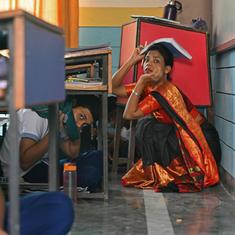It’s that time again! The greatest show on earth is upon us. Ahead of the Fifa World Cup in Russia, we look-back at the 20 tournaments before and the standout aspects from them.
Next up, the hosts Argentina finally win the World Cup, but this story was not one of just success...
Argentina 1978
“With what I know now, I can’t say I’m proud of my victory. But I didn’t realise; most of us didn’t. We just played football.” – Argentina’s striker Leopold Luque, years after the World Cup was lifted.
Despite a threatened boycott by several nations in protest at the Videla military regime, all the qualifiers assembled in Argentina. There was controversy surrounding the absence of Johan Cruyff as, he was widely regarded as the best player in the world at the time.
Some thought he had fallen out with the Dutch FA, many thought it was a sign of protest against the Argentinean dictatorship, but decades later he revealed it was because of a kidnap attempt that his family had survived months ahead of the tournament.
“I don’t know if you know that someone [put] a rifle at my head and tied me up and tied up my wife in front of the children at our flat in Barcelona,” he’d say.
The same format as 1974 was adopted – two group phases and no knockout stages – and controversy surrounded Argentina’s passage into the final.
The Argentines, for whom the long-haired Mario Kempes was a revelation up front, romped to a 6-0 win over Peru in their final match of the second phase to oust Brazil on goal difference, prompting cries of fixing from their South American rivals.
Holders West Germany failed to beat the Netherlands or Italy and were eliminated after a 3-2 loss to Austria, a famous win for them, celebrated till date as the Miracle of Cordoba. The Dutch, however, thrashed the Austrians 5-1 to reach the final again, but they were without their master Johan Cruyff, who had stayed at home.
And the final began in controversial fashion as well, as the BBC noted:
“As the ticker tape rained down on the Estadio Monumental pitch in Buenos Aires prior to kick-off on 25 June, the drama that had engulfed the tournament took another twist. Argentina’s players, desperate for any advantage they could find, objected to a bandage worn by the Dutch winger Rene van de Kerkhof on his right arm and the start was delayed.”
Once again the Dutch were beaten, to the delight of the 77,260-strong crowd in Buenos Aires. Argentina took the lead through Kempes after 37 minutes before substitute Dirk Nanninga equalised late on. In extra time Kempes restored Argentina’s lead and Daniel Bertoni made it 3-1, leaving captain Daniel Passarella to lift Argentina’s first World Cup. The Dutch refused to join in on the celebration.
A World Cup campaign surrounded by controversy came to an end. “In hindsight, we should never have played that World Cup,” Luque was quoted as saying. “I strongly believe that.”
Stats and trivia
- Argentina, who controversially played all their matches in the night for the advantage of knowing what happened in their groups, had to beat Peru by four clear goals in their last second-round match to reach the final. They eventually won 6-0 with what some commentators noted was “suspicious ease,” according to ESPN, prompting suggestions the game had been rigged. The fact that Peru’s keeper Ramon Quiroga had been born in Argentina did not help matters. No proof emerged, but the result still rankles.
- One of the consequences of that, and an incident in 1982 involving Germany, Austria and Algeria, the practice of final group matches kicking off at the same time came into force.
- The ’78 World Cup saw an African nation win a match at the finals for the first time, when Tunisia beat Mexico 3-1.
- 25 years and one month: Daniel Passarella, the youngest captain to lift the World Cup Trophy.
- 48 years: Longest gap ever between appearances in the final of the World Cup, as Argentina were present in the summit clash for the first time since the inaugural event in 1930.
- A 17-year-old Argentinean, who had made his international debut 15 months earlier, was reportedly inconsolable after being left out of Argentina’s final squad. Why is this significant? The teenager was a certain Diego Maradona. His time, as you all know, would come.
- Kempes, who would go on to win the golden boot, hadn’t scored a world cup goal in 11 hours and 38 minutes before his six in the 1978 edition. The legend, according to Fifa archives, goes that: “Heading into the second-round meeting with Poland, Cesar Luis Menotti persuaded Kempes that shaving off his moustache would help him end his drought. The cleanly-shaven ‘Matador’ responded.”
- Leading goalscorer: Mario Kempes (Argentina) – 6 goals
- Total number of goals in the tournament: 102 (2.7 goals per match)
For your viewing pleasure
The final
The moments of success
Official poster

With AFP and Fifa.com inputs










